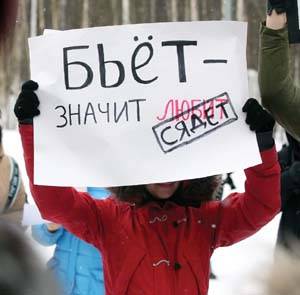There was once a political sense in which to be conservative meant to be backward-looking, to be 'living in' or 'dwelling on' the past. Progressives and radicals were, as the names imply, supposed to be more 'forward-looking'. Somehow, in the terrain of post-Holocaust political morality, these attributions became reversed. The emergence of international human rights rhetoric, the dramatic 'transition' in many countries from varieties of authoritarian regime to democracy, revelations about past cover-ups and unacknowledged historical crimes: all this has shifted the progressive gaze backwards into the past. Historical injustices had to be exposed, the guilty punished, victims compensated, damage repaired, evil exorcised, remorse expressed.
The natural response of the conservative establishment, by contrast, was denial and avoidance: draw the line on the past, close the book, don't open old wounds, let bygones be bygones. Suddenly the radicals are trapped in the past while the conservatives are all about tomorrow.
Such general attributions of political positions and reversals are obviously of limited application to specific cases. But certainly the 'justice in transition' discourse which dominated the progressive agenda since the 1980s embodies just this kind of backwards shift in emphasis.
There were major differences between and within the three major blocks of collapsing regimes – the Latin American juntas, state communism and (sui generis) apartheid South Africa. But all these transitions were built on the promise that a thorough expurgation of the past was necessary for a stable democratic future.
Thus the obsessive search after 'what really happened' (Truth); tracking down the perpetrators and their masters to be punished in the name of retribution or deterrence (Justice); compensating victims and survivors for their past losses; and extracting apologies, remorse and contrition from the wrongdoers. Even the forward looking quest for reconciliation is unthinkable without information about the past: I must know just what these people did before I can be reconciled to living with them now.
Two other deeply resonant forms of reparation politics also, by definition, must look backwards: first, the rituals of apology and forgiveness; second, the sanctification of private memory work and public commemoration.
While all this was unfolding in the international news arena (genocides, political massacres, disappearances, torture, trafficking), the more domestic tragedies of everyday life also increasingly became the object of reparation politics.
Whether it was adult men alleging sexual abuse by Catholic priests 40 years earlier; indigenous people making claims about land rights violated centuries ago; women whose lives had been wrecked by faulty cancer screening, or survivors of airplane, rail or ship accidents, calls would come for an independent inquiry ('Truth Commission?'), to be followed by legal action for damages and compensation democratic but non-political versions of the grand ambition of "making whole what has been smashed".
This is the title of John Torpey's just-published critique of recent reparations politics (Making Whole What Has Been Smashed: On Reparations Politics, Harvard University Press). The phrase derives from Walter Benjamin's description of a Paul Klee painting (Anglus Novus) in which an angel in flight contemplates the wreckage of the past piling up at its feet. "The angel would like to stay, awaken the dead and make whole what has been smashed." But a storm blowing from Paradise drives him backward into the future. "This storm is what we call progress," Benjamin laconically writes.
Torpey certainly does not argue that all political projects that look backwards to redress wrongs, compensate for losses, repair the shattered fragments of a violent past are futile, diversionary and literally 'reactionary,' and should be replaced by the more forward-looking, utopian visions of classic progressive politics, notably socialism. But even his more moderate thesis goes quite far: that for many people who automatically see themselves (and are seen) as progressives or radicals, " .the past has extensively replaced the future as the temporal horizon in which to think about politics."
This overstates the general case, certainly outside the United States, but does apply to the many arenas of public life influenced by the legacies of identity politics and the emerging human rights culture of the 1980s and 1990s. If the motto of transitional justice was 'coming to terms with the past,' its iconic image was Archbishop Tutu, benignly presiding over the South African Truth and Reconciliation Commission. In another version more politically disruptive there is the resonant narrative of reparations for African Americans for the damage done by slavery.
There is obviously a loose sense – in personal as well as political life – where an excessive preoccupation with the past is a block to making any constructive plans about the future. It literally stops you from 'getting on with things.' This preoccupation, however, may not always be quite as pathological ("usually a sign that something is amiss") as Torpey suggests. He is being a little overdramatically historicist to explain this intensive and censorious recovery of the past as "a defensive response to the disorientation induced by the collapse of an invigorating conception of a common destiny."
Torpey knows anyway that looking backwards is not in itself the problem; he does not appear to dispute Freud's revolutionary claim that human emancipation depends on coming to terms with an unmastered past. The problem lies in the rather special ways in which routes to the future are traced from nightmares of the past.
Only in South Africa (where traditional religious thinking of both masters and servants was not displaced by the newly imported psychobabble of the professional elites) could one institution – the Truth and Reconciliation Commission – actually have combined the three most problematic such ways: The legalistic ('tortlike') model of compensation (in practice, a policy that has been hardly implemented); the therapeutic ideal of truth-telling, with its lexicon of trauma, hidden suffering, repression, 'closure' and belief that 'revealing is healing'; and the theological tropes of confession, expiation and forgiveness.
The widespread diffusion of these models (in different mixtures) was made possible by yet another unlikely three-part combination: multi-culturalism and identity politics; concern for the needs and rights of victims; and the uncritical adoption of strict legalism by the human rights movement.
The wide range of reparation politics from purely symbolic claims to acknowledge the suffering of historical victims to detailed financial inventories of damages awarded to current, living claimants hardly allows much general evaluation. Torpey uses three case studies to show how law-like claims for redress by special victim groups are not easily translated into collective political visions: the redress settlements concerning Japanese-Americans and Japanese-Canadians interned during World War ll; the legal strategy for claiming reparations for slavery for black Americans; and the current forms of reparation politics in post Truth Commission South Africa. Other cases – the Japanese comfort women, the Australian displacement of aboriginal people – tell the same story.
Torpey is rightly suspicious about the growing ranks of 'entrepreneurs of memory' theologians who see history in redemptory terms, therapists searching for past traumas and every hack intellectual who sees history as a repository of 'lessons' for the present. The most serious danger to visionary politics comes from seeing the history of human oppression as a series of potentially justiciable civil offences. We need to listen more cautiously to the legalistic tone of so much current activism, debate and political action what German philosopher Jurgun Habermas describes as the "juridification of politics".
Marina Warner, in an essay on the politics of apology for openDemocracy.net, is surely right, though, that the critique of reparations politics ignores the intrinsic value of political struggles for regret, apology and remorse. Apology, as she says, "adds to the sum of justice in the world." She also reminds us of the ideological atrocities of the century that were committed not to repair the past, but in the name of some political blueprint of the future.
One reading of 'The End of History' is that these dominantly Left-wing ideologues and theorists of revolutionary slaughter – the Stalins and the Pol Pots – may never be seen again. But in place of them the mass victims of the future may be the slow but steady sacrifices required by a less visible ideology: the bland utopia of the free market. And who will apologise to them?

